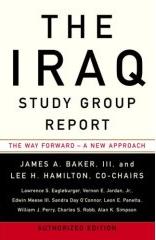|
|
Books by and about 2020 presidential candidates |
|
Crippled America,
by Donald J. Trump (2015) |
United,
by Cory Booker (2016) |
The Truths We Hold,
by Kamala Harris (2019) |
Smart on Crime,
by Kamala Harris (2010) |
Guide to Political Revolution,
by Bernie Sanders (2017) |
Where We Go From Here,
by Bernie Sanders (2018) |
Promise Me, Dad ,
by Joe Biden (2017) |
Conscience of a Conservative,
by Jeff Flake (2017) |
Two Paths,
by Gov. John Kasich (2017) |
Every Other Monday,
by Rep. John Kasich (2010) |
Courage is Contagious,
by John Kasich (1998) |
Shortest Way Home,
by Pete Buttigieg (2019) |
The Book of Joe ,
by Jeff Wilser (2019; biography of Joe Biden) |
Becoming,
by Michelle Obama (2018) |
Our Revolution,
by Bernie Sanders (2016) |
This Fight Is Our Fight,
by Elizabeth Warren (2017) |
Higher Loyalty,
by James Comey (2018) |
The Making of Donald Trump,
by David Cay Johnston (2017) |
|
Books by and about the 2016 presidential election |
|
What Happened ,
by Hillary Clinton (2017) |
Higher Loyalty ,
by James Comey (2018) |
Trump vs. Hillary On The Issues ,
by Jesse Gordon (2016) |
Hard Choices,
by Hillary Clinton (2014) |
Becoming ,
by Michelle Obama (2018) |
Outsider in the White House,
by Bernie Sanders (2015) |
|
|
Book Reviews |
(from Amazon.com) |
(click a book cover for a review or other books by or about the presidency from Amazon.com)
|
Recommendations of the Iraq Study Group Report, released Dec. 6, 2006

(Click for Amazon book review)
Click here for 16 full quotes from Robert Gates in the book Recommendations of the Iraq Study Group Report.
OR click on an issue category below for a subset. |
The Iraq Study Group Report: The Way Forward - A New Approach.
The U.S. Institute of Peace was the facilitating organization for the Iraq Study Group (ISG),
co-chaired by James A. Baker, III, and Lee H. Hamilton (and hence also known as the Baker-Hamilton Commission).
The ISG Report is available in its original form:
The Iraq SURVEY Group is a 2004 report, two years before the Iraq STUDY Group report. Click here for excerpts from the Iraq Survey Group report.
| OnTheIssues.org excerpts: (click on issues for details)
|
Budget & Economy
Iraq war costs should not circumvent normal budget process.
Iraq war will cost US up to $2 trillion.
|
Foreign Policy
US should engage directly with Iran and Syria.
Palestinian state if Syria & Hamas acknowledge Israel.
|
Homeland Security
More funding for languages and intelligence in Iraq.
|
War & Peace
Withdraw US support if Iraqi gov’t fails at milestones.
No permanent US bases in Iraq, and no US control of oil.
Support the unity and territorial integrity of Iraq.
Comprehensive New Diplomatic Offensive before 2007.
Iraq diverted attention from Afghanistan; more support there.
Iraq needs de-Baathification; oil sharing; & local elections.
No military action alone can bring about success in Iraq.
Totally reform the Iraqi local police and border police.
Imbed US troops in Iraqi army; the rest leave by 2008.
No large increase of US troops, but no immediate withdrawal.
3,000 Iraqi civilians killed monthly; Mahdi army now 60,000.
|
The above quotations are from Recommendations of the Iraq Study Group Report, released Dec. 6, 2006.
The Iraq Study Group (ISG) was launched on March 15, 2006 at a meeting on Capitol Hill. It was created at the direction of a bipartisan group of members of the U.S. Congress. Representative Frank Wolf (R-VA) was the leading supporter of the group’s creation. Wolf had been calling for a “fresh eyes” assessment of the situation in Iraq since the summer of 2005. From its inception, the ISG was designed to be bipartisan, and the initiative has attracted broad, bipartisan support among members of the House and Senate.
The Bush administration was not involved in creating the ISG, but the White House welcomed it, and has provided access to people, documents, and travel to Iraq. President Bush met with the ISG members on June 14, 2006 and again on November 13, 2006. He has met further with the two co-chairs. The White House respects the independence of the group.
The ISG was not given a statutory mandate when it was created. However, at the direction of the ISG co-chairs, its orientation has been to offer a forward-looking assessment of the current and prospective situation in Iraq, including policy suggestions and advice. Specifically, ISG members have focused their review of the situation in Iraq on four broad topics:
- The strategic environment in Iraq and the region;
- The security of Iraq and key challenges to enhancing security within the country;
- Political developments within Iraq following the elections and formation of the new government;
- The economy and reconstruction.
The members of the ISG (in addition to the two chairs) were:
- Lawrence S. Eagleburger, former U.S. Secretary of State ;
- Vernon E. Jordan, Jr., Senior Managing Director, Lazard, Freres & Co. LLC;
- Edwin Meese, III, former U.S. Attorney General;
- Sandra Day O’Connor, former U.S. Supreme Court Associate Justice;
- Leon E. Panetta, former White House Chief of Staff;
- William J. Perry, former U.S. Secretary of Defense;
- Charles S. Robb, former U.S. Senator;
- Alan K. Simpson, former U.S. Senator;
- Former Director of Central Intelligence Robert M. Gates was also a member of the panel until he was replaced by Lawrence Eagleburger on November 10, 2006. Gates resigned because he was nominated by President George W. Bush as US Secretary of Defense on 8 November 2006, replacing Donald Rumsfeld.
Source: http://www.usip.org/isg/fact_sheet.html
|












